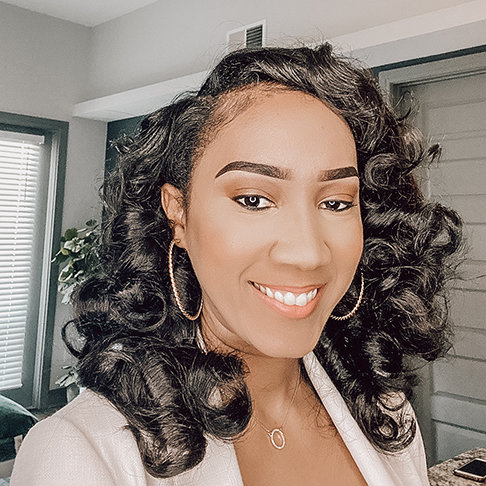
Self-awareness is crucial for embarking on a journey of personal growth. Learning how to be more self-aware goes beyond simply recognizing our strengths and weaknesses; it is about delving deep into who we are and why we behave the way we do. By developing self-awareness, we better understand our emotions, thoughts, and motivations, enabling us to make conscious choices that align with our values and aspirations.
In this post, we’ll dive into why self-awareness is important and explore a few tips to help you become more self-aware.
Self-awareness empowers us to take control of our lives and break free from patterns that no longer serve us. It allows us to identify areas for improvement, both in our personal and professional lives, and take proactive steps towards growth. When we are aware of our strengths, we can leverage them to achieve success. When we acknowledge our weaknesses, we open ourselves up to opportunities for learning and development.
Moreover, self-awareness enhances our relationships with others. By understanding our own emotions and reactions, we become better equipped to empathize with and understand the perspectives of those around us. This deeper level of empathy strengthens our connections and fosters more meaningful interactions. In turn, nurturing these connections becomes an integral part of personal growth.
Now that we recognize how vital self-awareness is to our personal growth, here are seven practical strategies to help you become more self-aware and better understand who you are.
To be more self-aware, we must engage in techniques that allow us to explore our inner world and gain valuable insights. Here are a few strategies that can help guide you on this introspective journey.
Carving out regular periods for self-reflection allows us to pause, step back, and take an honest look at ourselves. Set aside dedicated time each day, whether in the morning, during a quiet walk, or before bed, to reflect on your thoughts, emotions, and actions. This practice encourages us to examine our intentions, motivations, and behavior patterns, enabling us to uncover valuable insights about ourselves.
Journaling serves as a tangible outlet for our reflections. It provides a safe space to express ourselves freely without fear of judgment or interruption. Through journaling, we can capture our innermost thoughts, aspirations, and challenges. It allows us to document our journey, celebrate our wins, and explore our struggles. By putting our thoughts onto paper, we gain a new perspective and uncover insights that might have otherwise stayed hidden.
Writing in a journal enables us to untangle complex emotions, clarify our goals, and uncover limiting beliefs that may hold us back. As we put our thoughts into words, we often find that our ideas become clearer, our emotions more manageable, and our fears less intimidating. Journaling also acts as a form of self-accountability, allowing us to track our progress, identify areas for improvement, and stay committed to our personal growth journey.
Another technique to learn how to be more self-aware is cultivating mindfulness. Mindfulness involves being fully present and engaged in the here and now rather than dwelling on the past or worrying about the future. It invites us to slow down, tune in to our senses, and anchor ourselves in the present moment.
Practicing mindfulness makes us more attuned to our thoughts, emotions, and bodily sensations, enabling us to respond to them with greater clarity and intention. When we approach our experiences with curiosity and openness, we uncover insights and gain a deeper sense of self-awareness.

Engaging in mindfulness meditation provides a space for stillness and self-observation. By focusing on our breath and bringing our attention to the present moment, we cultivate a non-judgmental awareness of our thoughts, emotions, and sensations. This practice allows us to observe our internal experiences without getting caught up in them, fostering a deeper understanding of our inner world.
Feedback from others can be instrumental in deepening our self-understanding. Actively seek feedback from trusted friends, family members, or mentors who can offer objective perspectives on your strengths, weaknesses, and blind spots. This feedback can provide valuable insights into how others perceive us, revealing aspects of ourselves that may be difficult to see on our own.
Building a support network can further enhance our self-awareness and personal growth journey. It can feel overwhelming to try to do it all alone. We are social beings who thrive on connection and support from others, which also applies to our personal development.
Building a support network allows us to surround ourselves with like-minded individuals who can provide encouragement, guidance, and a different perspective. It gives us a sense of belonging and helps us feel understood as we navigate our own journey of self-awareness. Whether it’s friends, family, or mentors, having a solid support system can provide the motivation and accountability needed to stay on track and continue growing.
In addition to building a support network, seeking professional help can be a game-changer in our personal growth journey. Just as we consult experts in other areas of our lives, such as doctors, lawyers, or financial advisors, a professional can provide the knowledge and expertise to guide us through the intricacies of self-awareness and personal development.
Therapists, coaches, or counselors have the experience and tools to help us uncover deeper insights, navigate challenges, and overcome obstacles holding us back. They can offer a safe and non-judgmental space where we can explore our thoughts, emotions, and behaviors, helping us gain a clearer understanding of ourselves.
A professional’s guidance can shed light on blind spots, challenge our limiting beliefs, and offer practical strategies to enhance our self-awareness and promote personal growth.
It’s essential to remember that seeking professional help is not a sign of weakness but rather a sign of strength and a commitment to our own growth. It takes courage to recognize that we may need additional support and guidance and to take the necessary steps to seek it.
Exploring personality assessments, such as the Myers-Briggs Type Indicator or the Enneagram, can offer valuable frameworks for self-reflection and growth. These assessments provide insights into our personality traits, strengths, and areas for development. Understanding our unique characteristics allows us to leverage our strengths and work on areas that may hinder our personal growth.
By actively engaging in these practical techniques, we create opportunities for deeper self-understanding and personal growth. These methods can offer valuable insights into our thoughts, emotions, behaviors, and the underlying patterns that shape our lives. So, take time for self-reflection, cultivate mindfulness, and seek support when needed.
As Carl Jung once said, “Until you make the unconscious conscious, it will direct your life, and you will call it fate.”
Take control of your life, dive deep into self-awareness, and unlock the power that lies within you.
I love, honor, and appreciate you.
Thanks for reading!

